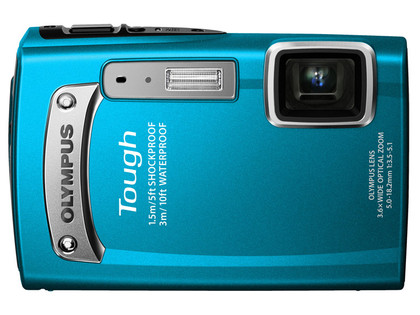CES 2012 highlights: what you need to know
Phones, cameras, computing, TV, gaming and more
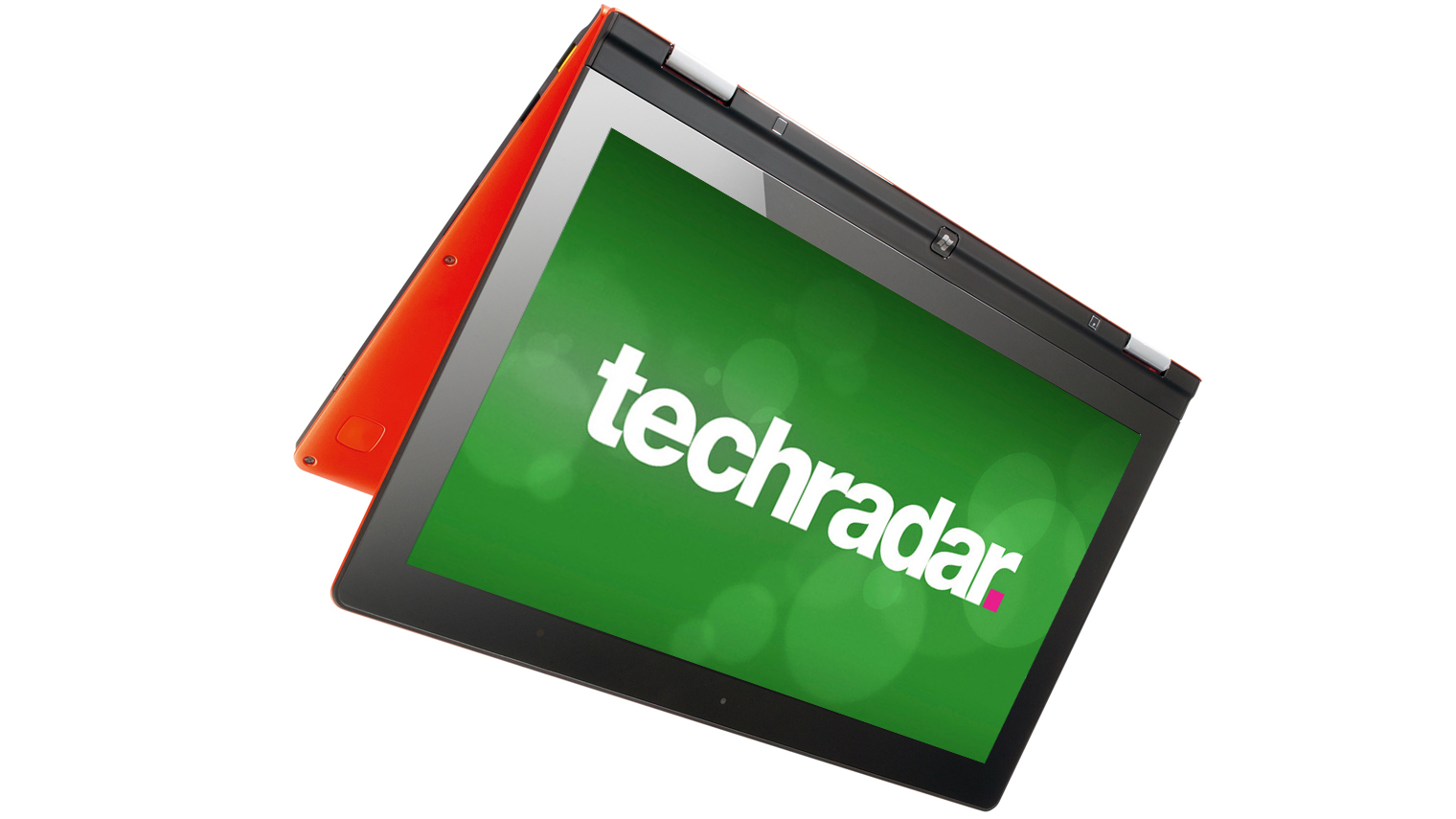
The world's greatest tech show - CES 2012 - kicked off on Monday 9 January (if you're a show obsessive, note that's a week later than usual).
Running until Thursday, the show sees the entire tech world descend on Las Vegas. It covers more than 1.8 million square feet and has more than 140,000 attendees from across the globe. The biggest names in technology are there to talk about their plans for 2012.
As for every CES, TechRadar is there getting hands on with the hardware that matters and bringing you the latest breaking news from the show. We have a dedicated CES 2012 channel where you can keep up with all the news.
Here are our CES 2012 highlights…
The biggest news at CES 2012
LG unveils stunning 55-inch OLED TV
Steve Ballmer gives last ever Microsoft keynote at CES
Microsoft announces Kinect for PC
Sony develops new Crystal LED tech to rival OLED
Intel promises touch-enabled Ultrabooks
iPad 3 spotted? Or is it the iPad 2S...
CES 2012: Tablets
Without an Apple presence at CES, it's a chance for other manufacturers to shout about their tablet devices. But there's not the mad rush of iPad rivals that you might expect. Poor sales of Android tablets seem to have made the big electronics giants more cautious.
That said, this week we've nodded appreciatively in the direction of the Acer Iconia Tab A700, which will come packing Android 4.0 (aka Ice Cream Sandwich) and a huge quad-core processor. Nice.
Get daily insight, inspiration and deals in your inbox
Sign up for breaking news, reviews, opinion, top tech deals, and more.
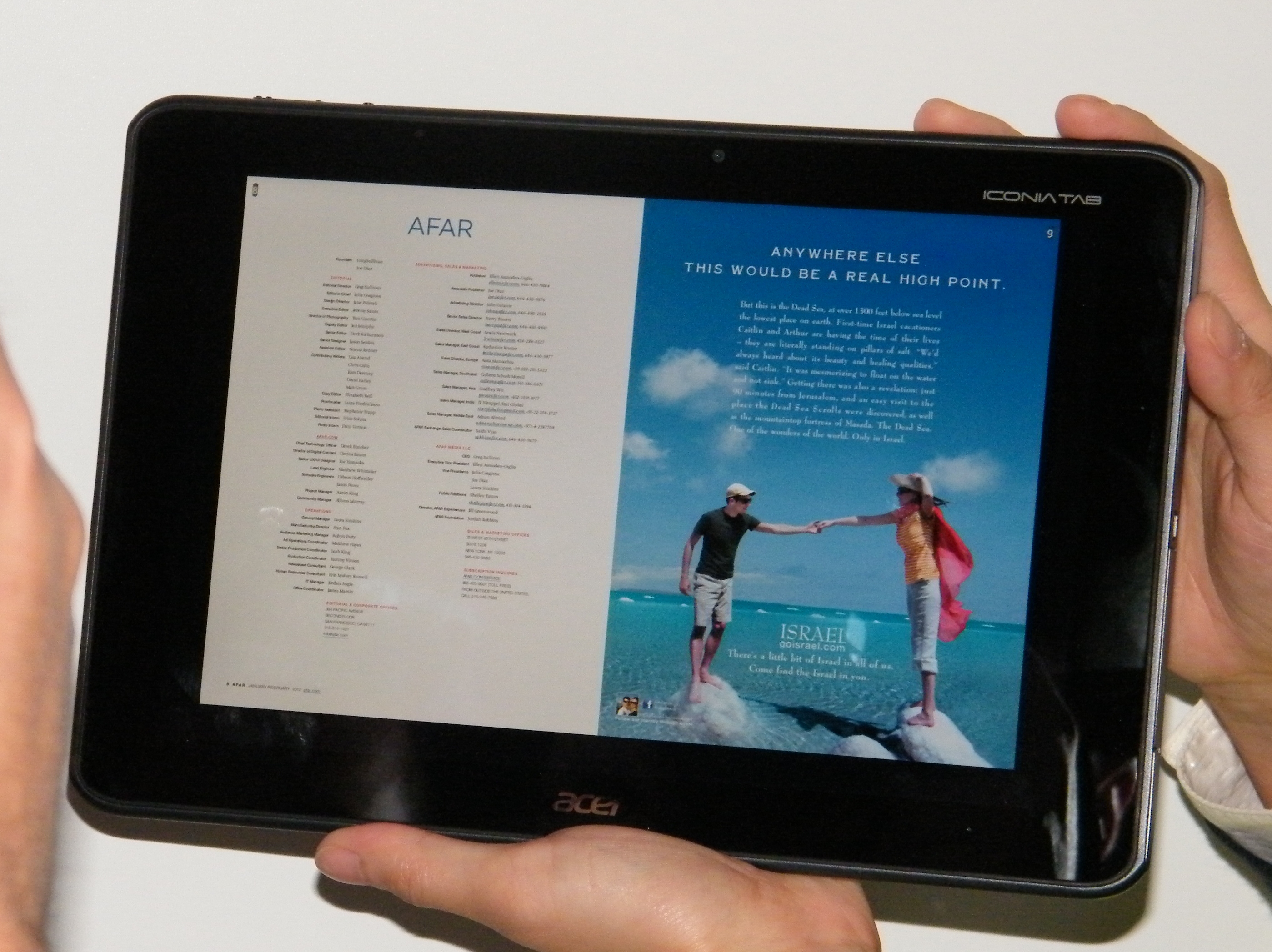
Toshiba has also jumped back into tablet waters with the new Excite 10, a stylish 10.1-inch Android slab that boasts a 1.2GHz dual-core TI processor and a 1,280 x 800 pixel display.
But it's Lenovo that has turned heads and widened eyes with its two new tablet models. There's the Asus Transformer-alike IdeaPad S2 running Ice Cream Sandwich and the quad-core Tegra 3-powered IdeaPad K2 (see below), which looks like a supercomputer pretending to be a clipboard.
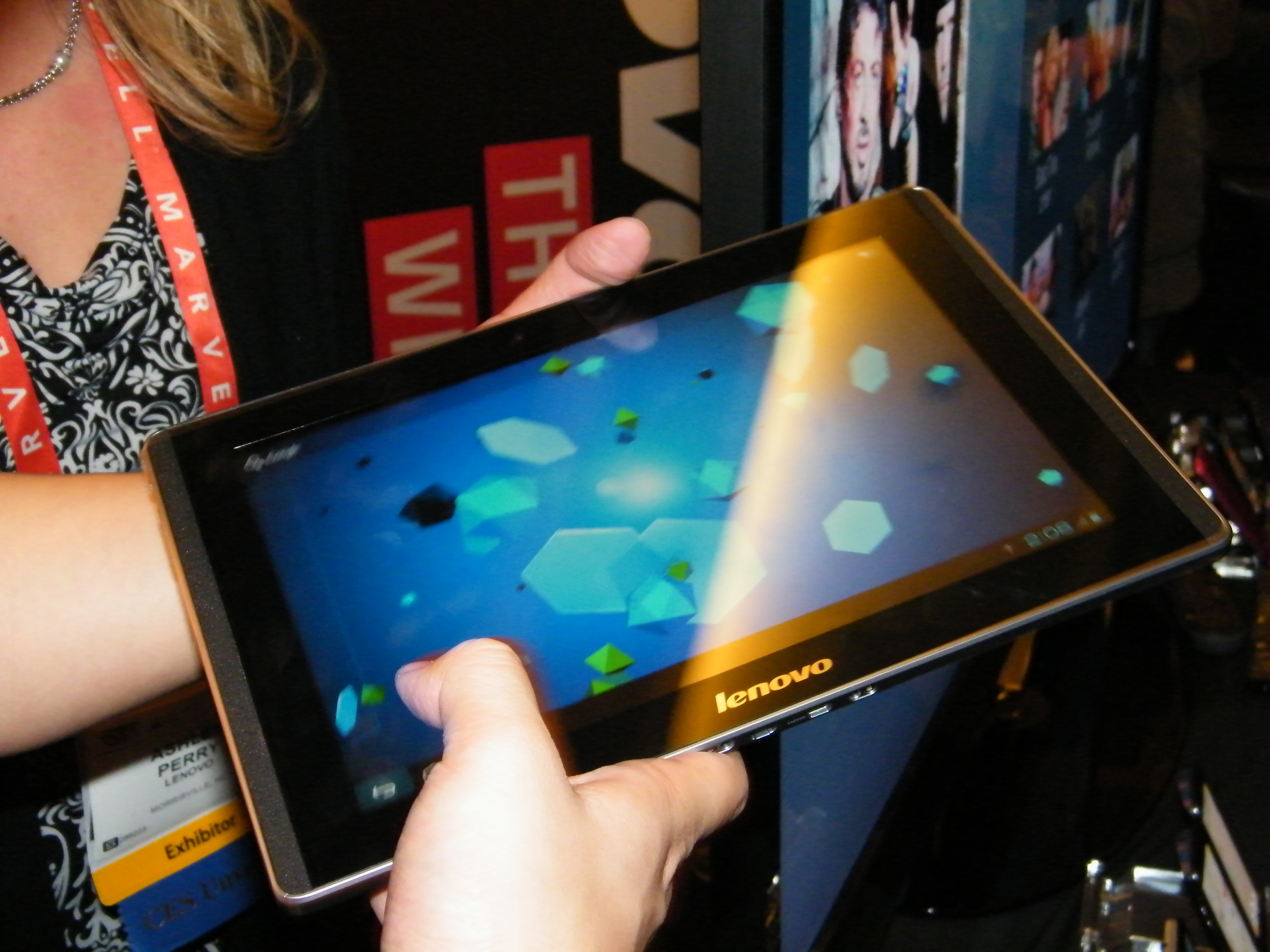
Lenovo has also been showing off the IdeaPad Yoga, a 13.1-inch laptop/tablet that has been described as "like Microsoft's vision for the Tablet PC from 2002. Only good."
We've also had a play with the ViewSonic ViewPad E70 and the Aigopad m803. While the feisty, quad-core Asus MeMo has Amazon's Kindle Fire firmly in its sights.
Looking to the future, Nvidia has been demoing a prototype Windows 8 tablet, powered by its quad-core Tegra 3 processor. It's good. Very good. Intel should be worried.
Meanwhile, Razer's 'Project Fiona' gaming tablet (see below) has got us all frothed up about gaming on the sofa in 2012. Who needs a PlayStation Vita when you can play PC games on a tablet with two controllers? We hate those fiddly touchscreen joypads...
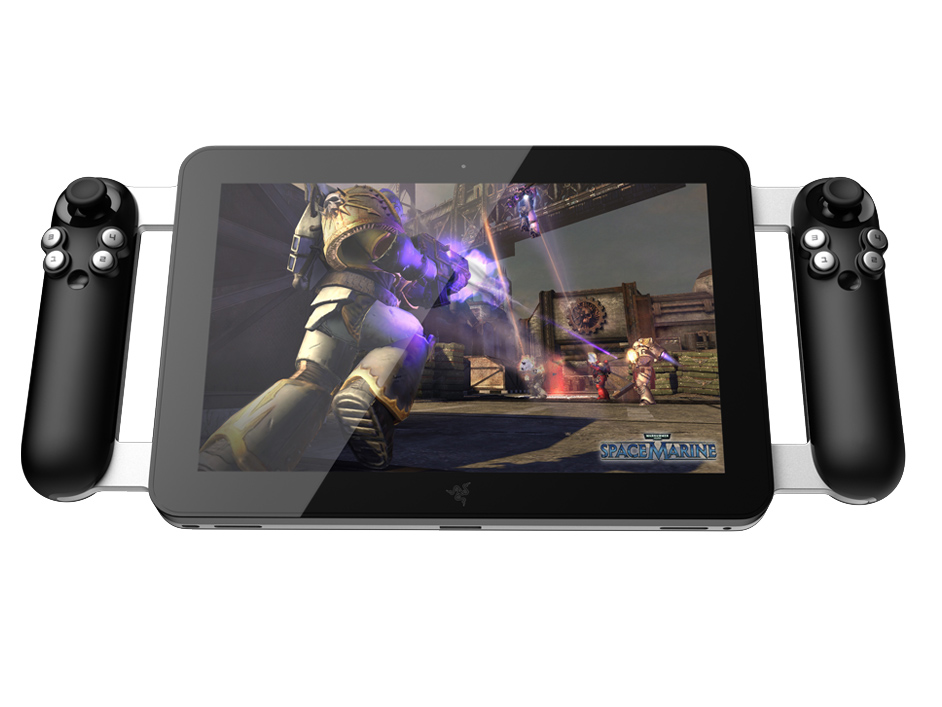
Check out our video of Project Fiona from CES 2012:
What of RIM? Rather than unveil a new Playbook model (that would be sheer madness...), the beleaguered Blackberry builder has upgraded its tablet software to version 2.0. We wish we had some groundbreaking features to report. We don't. See for yourself.
CES 2012: Phones
While most manufacturers will be saving their big phone launches until Mobile World Congress in February, several new smartphones have been been spotted on the plush Vegas carpets.
Having absorbed Ericsson into the Sony hive mind, the newest Xperia handsets are the first to break cover without any Ericsson branding.
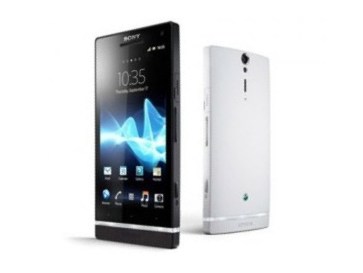
The Sony Xperia S (pictured above) is essentially a Sony Ericsson Xperia Arc with HD - a 4.3-inch Reality Display (1,280 x 700 pixels), a 12MP camera and the promise of an Ice Cream Sandwich upgrade in Q2.
You can also say hello to the new Sony Xperia Ion, a PlayStation-certified, dual-core (1.5GHz) smartphone with 16GB of internal storage and a 12MP rear camera.
Elsewhere, HTC has upgraded the Titan for duty on AT&T. The HTC Titan II is the same 4.7-inch, 1.5GHz Windows Phone that you might be indifferent to. But it's been souped up with a 16MP snapper, wide angle lens, dual LED flash and LTE support.
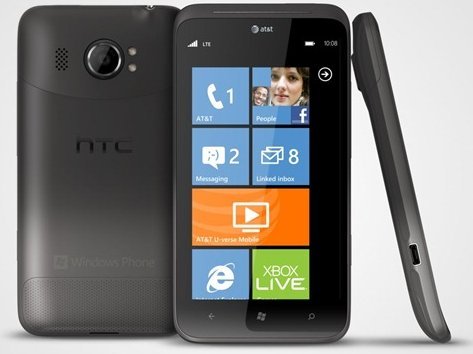
The US also gets the Nokia Lumia 800 dressed up as the Nokia Lumia 900. What's new? It's LTE-powered, larger screened (4.3 inches) and has a better front camera.
The LG Spectrum also catches the eye with a 4.5-inch IPS LCD that rivals the Retina display on the iPhone 4. While the the Huawei Ascend P1 S and Ascend P1 trumpet Super AMOLED screens and the thinnest chassis on the market. It's only 6.68mm thick.
Intel has regularly missed the boat when it comes to mobile, but that doesn't stop it trying to catch up. The chip colossus has used this year's CES to publish its reference design for smartphones, which stipulates a minimum spec for any manufacturer who wants to use its Atom chips.
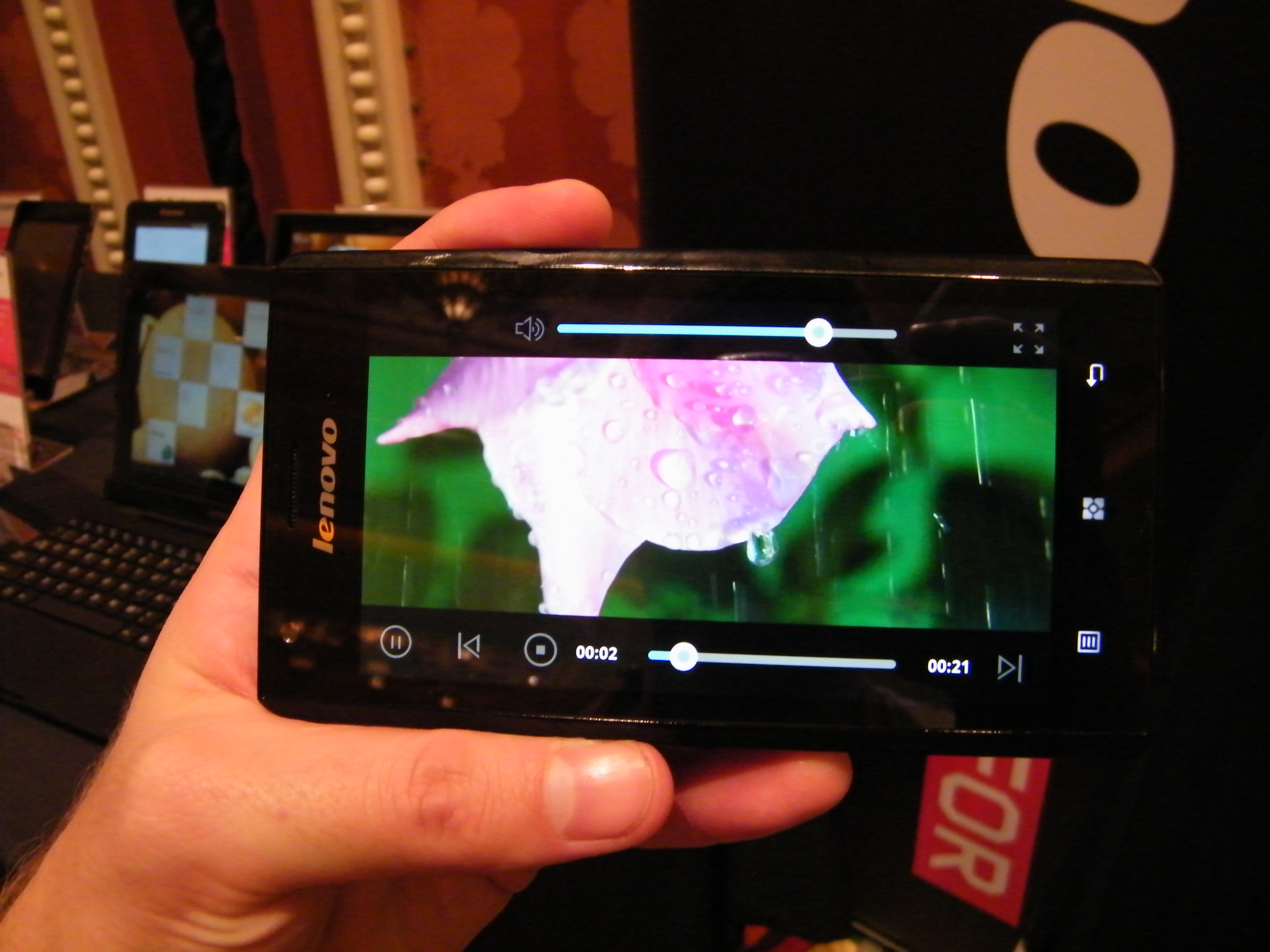
Need an example? You're in luck. Lenovo has partnered with Intel to produce the Lenovo K800, an Android-powered Atom-phone with a 720p 4.5-inch display, 8MP camera, NFC and HDMI. It's good. And quite noticeably zippy. But Intel will need better phones than this to establish Atom as a credible mobile CPU.
The future of mobiles in 2012 arguably lies with quad-core handsets like Fujitsu's 1.2GHz Nvidia Tegra 3 quad-core super phone prototype. Is it 'super'? Really? The inclusion of Android 4.0 (Ice Cream Sandwich), a 1,280x720 4.6-inch TFT LCD, 13.1MP rear-facing camera and 4GB of RAM would suggest a big, fat "hell, yeah!"
CES 2012: Laptops
Think the laptop is dead? Far from it. Acer launched the 13.3-inch Aspire S5 during its CES 2012 press conference and promised Windows 8 Ultrabooks in the second half of the year.
Forget netbooks, chromebooks and desktop replacement systems. Ultrabooks that pay design homage to Apple's skinny Macbook Air are the new laptop form factor of choice. Without any other stand-out gadgets, they've quickly become one of the stars of the 2012 show.
Lenovo, for example, has unwrapped its good looking IdeaPad U Series ultrabooks at this year's show - the 13-inch U310 model weighs in at 1.7kg and is only 18mm thick.
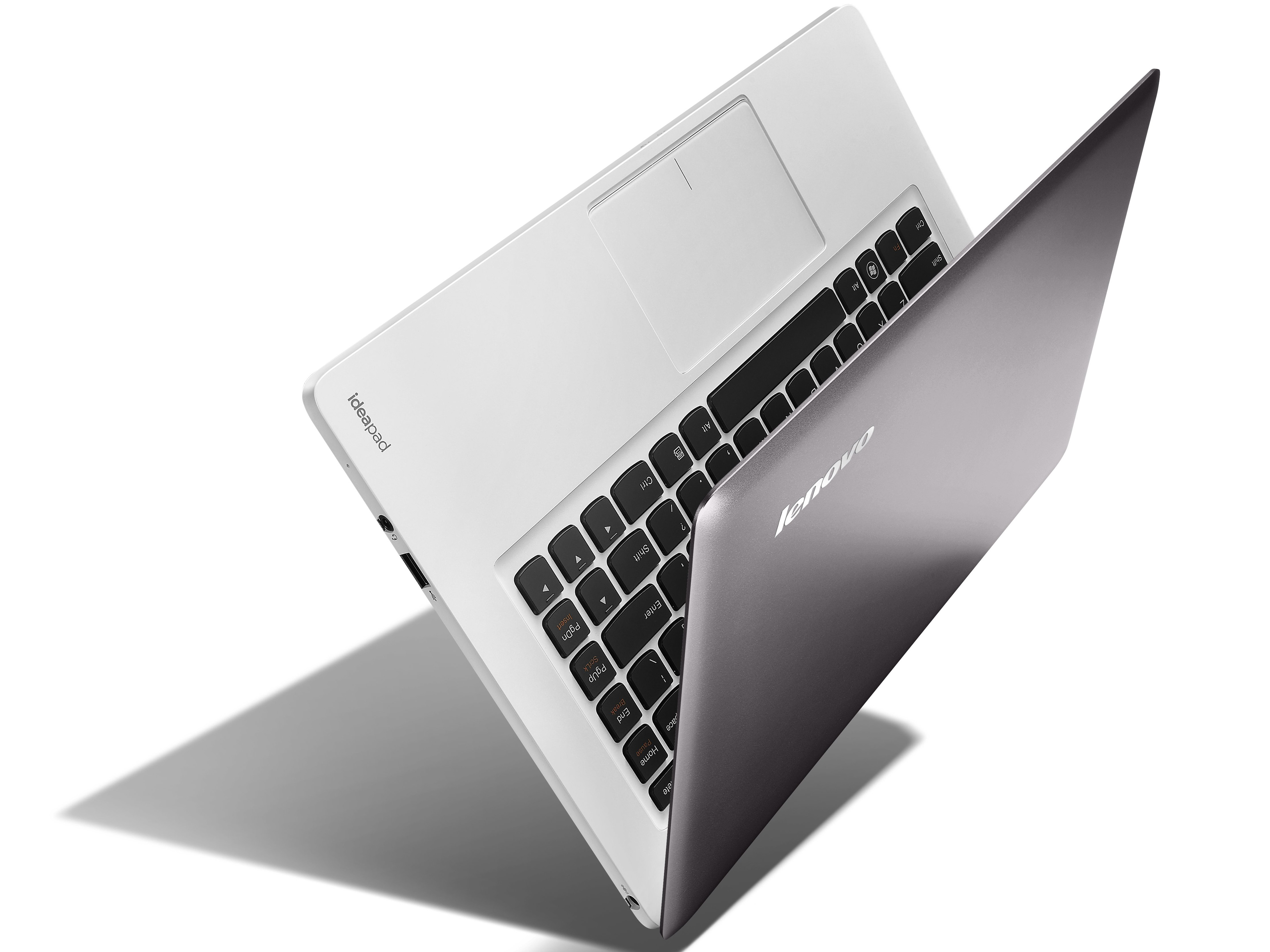
Intel believes that tablets can't replace laptop computers and that we'll be even happier with a convertible Ultrabook that runs Windows 8 (and is powered by Sandy Bridge/Ivy Bridge Intel CPUs. Obviously).
HP's Ultrabook effort is the good-lookin' Envy 14 Spectre, which incorporates a roomier 14-inch (1,600 x 900 pixel) panel and is only 21mm thick. Under the hood there's an Intel Core i5 or Core i7 processor, and a 128GB hard drive.
Samsung, meanwhile, joins the Ultrabook club with its Series 5 devices, which will be availble in 13- and 14-inch variants with 2nd generation Intel Core i5 engines and Radeon HD graphics.
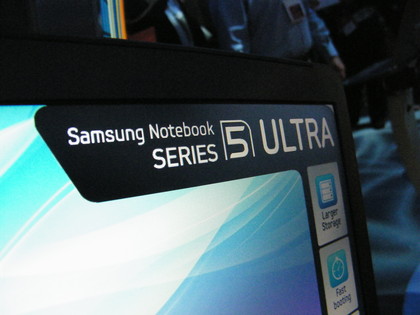
Samsung also rolled out the second generation of its Series 9 laptops with a refined 'aerodynamic design'.
LG has also jumped on the Ultrabook bandwagon, showcasing the slender LG Z330 and LG Z430 Super Ultrabooks. What's 'Super' about them? We're not sure.
The 13-inch Z330 features a Core i7 processor, a SATA3 SSD and boasts a skinny frame that's an astounding 14.7mm thick. The Z430 is a little bigger with a 14-inch display and dual SSD/HDD storage.
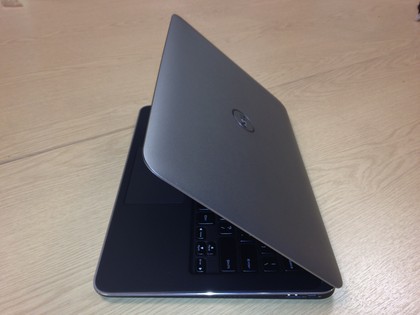
Other Ultrabook contenders include the HP Folio 13 and the Dell XPS 13, a gorgeous device that could seduce you with its looks before you even thought to ask about the specs. Oh yes, the specs... a 13-inch display, narrow 316 x 205mm footprint, Intel Core i5 or i7 processor, 4 gigs of memory and a 128/256GB SSD.
But the prize for strangest laptop surely goes to Intel's Nikiski see-through notebook. It isn't an Ultrabook (although a thinner version is planned), but it does feature a clever glass touchpad that doubles up as a touchscreen when you close the lid (see below).
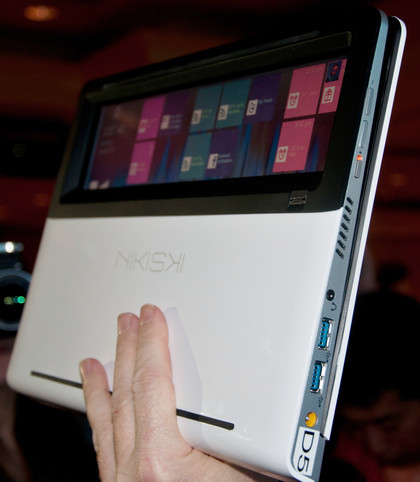
CES 2012: HDTVs
Despite the popularity of tablets and smartphones, CES has always been about TVs. Bigger TVs, thinner TVs, Full HD TVs, 4K TVs, OLED TVs and smart Internet-connected TVs. CES 2012 is no different.
One of the stars of the show is LG's new 4mm-thick 55-inch OLED 3D HDTV, which has got Vegas crowds dribbling down their free promotional T-shirts. Only 4mm. That's thinner than your smartphone. It's quite simply stunning and still shots don't do it justice.
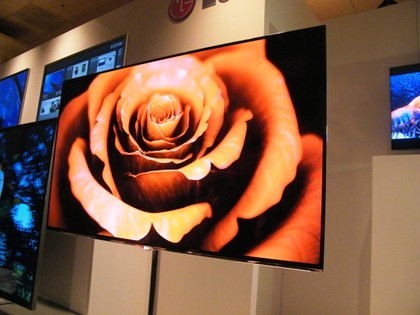
Not to be outdone (although it clearly has been), Samsung also has a 55-inch OLED telly of its own. Check out our photos and video.
Could this finally be the year that OLED becomes more than a headline-grabbing technology demo? Our fingers are crossed. Again. Just like last year...
As for Sony, it pressganged Hollywood star Will Smith to look impressed by its prototype Crystal LED technology. Fusing LCD and OLED, the futuristic TV works by packing in six million LEDs to give it OLED levels of clarity, colour and brightness.
In the battle of the BIG screens, LG and Sharp duked it out for the 'largest 3D TV of the show' award. Sharp came close with its 80-incher, but LG just nabbed the gong with its 84-inch ultra definition (3,840 x 2,160 pixel) set. The 1mm bezel "enhances the illusion that the 3D is borderless".
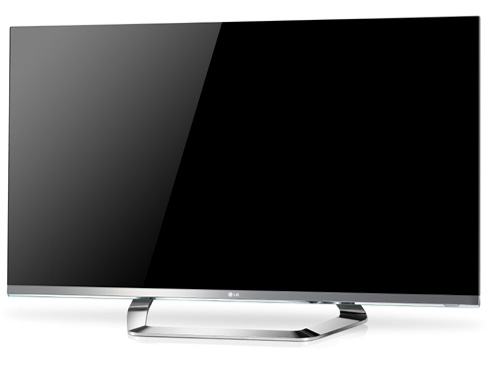
And if you think 4K2K TV is impressive, wait until you clap your eyes on Sharp's prototype 8K panel, which boasts 7,680 x 4,320 pixels. That's 16 times the resolution of HD.
Of course, the next generation of TVs will also be smarter. Sony has plans to play around with Google TV STBs, LG also has a Smart TV running Google's Android telly system, while Opera has unveiled more about its television app store.
While we wait for a Siri-powered Apple iTV, Samsung and LG have both been pimping Kinect-style gesture technology as a replacement for the remote control.
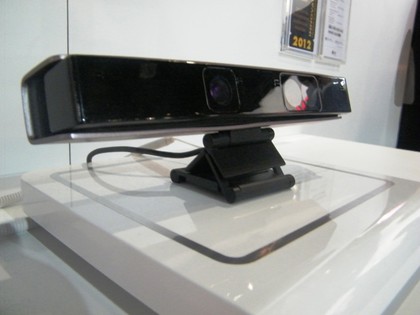
In fact, LG's system uses an add-on camera (pictured above) that looks suspiciously similar to Microsoft's Xbox 360 peripheral. Samsung's tech uses the camera that's built into its 8000-series HD TVs.
Panasonic, meanwhile, enlisted the help of Justin Timberlake to launch MySpace TV, which will feature on new Viera HDTVs. Does anybody still use MySpace? And can any of them afford a TV? We're not convinced. Panasonic also has a big OLED TV in the works, but it just wasn't ready for this year's show.
CES 2012: Gadgets
What else have we been impressed by at this year's CES? Sure there have been novelty USB sticks, remote-controlled iPhone-copters and Microsoft had a tweet choir during its keynote. But here are the gadgets that have really caught our giant, Sauron-esque eye...
For a peek into the future of cloud computing, look no further than the OnLive Desktop for iPad. Want to use the Microsoft Office Suite on your tablet? OnLive is happy to oblige.
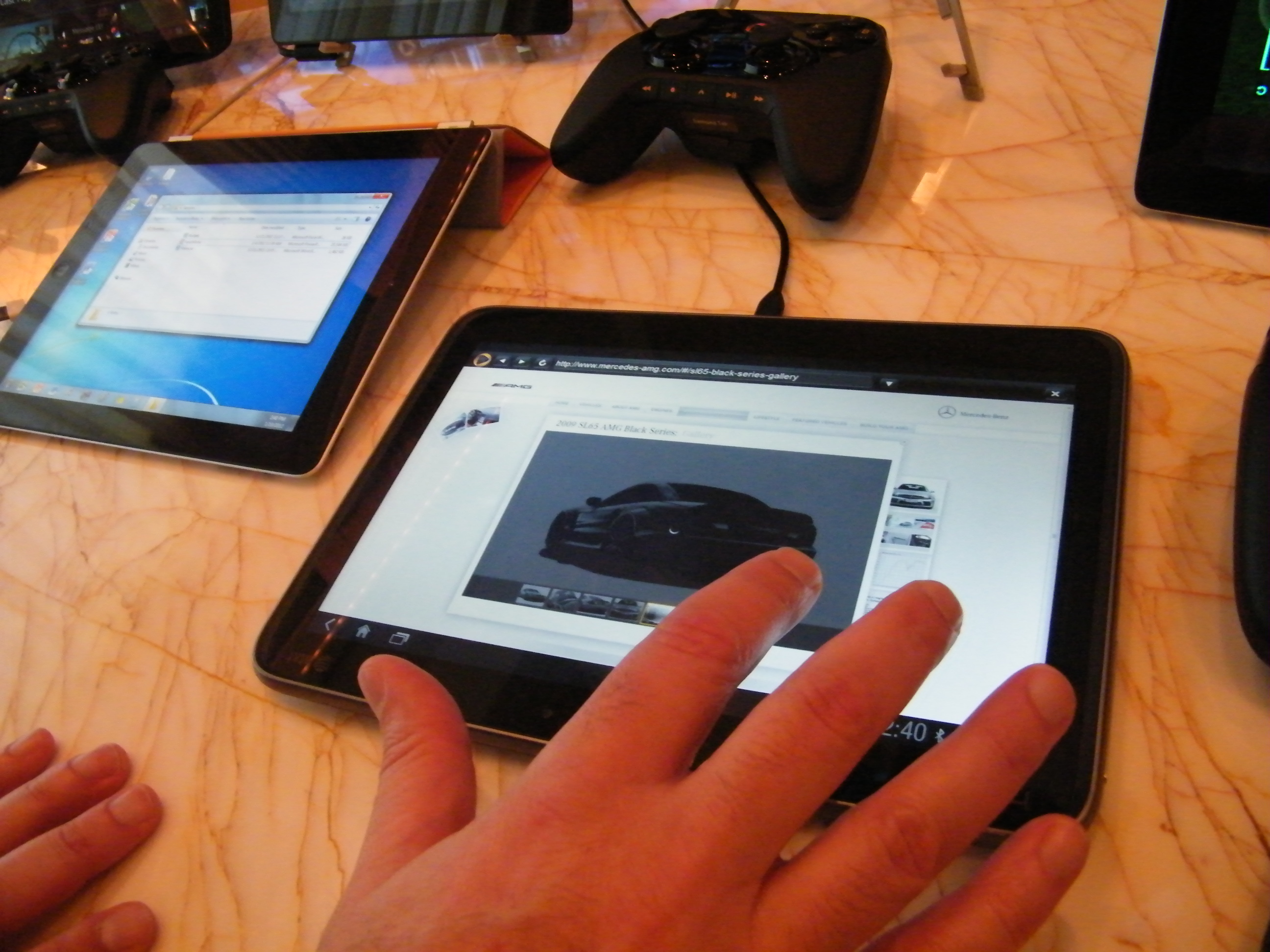
JVC has announced the world's first handheld 4K camcorder. The GY-HMQ10 can take 3,840 x 2,160 footage at 24 or 50p.
Pico projectors may not have the lustre they had when first released but there's certain companies which keep churning out the pint-sized product again and again. Check out the Optoma PK32.
If you want Apple's AirPlay but don't want to spend hundreds replacing the speakers you've already spent hundreds on, Griffin has a treat for you.
CES 2012: Cameras
Photographers will doubtless be intrigued by Fujifilm's newly designed X-Trans 16-million pixel APS-C CMOS sensor. Built into the new X-Pro 1 mirrorless camera, Fuji claims that it is capable of delivering resolution of the same quality, if not superior, to a full-frame sensor. Here's our hands on: Fuji X-Pro1 review.
We've also had some hands on time with the Canon G1 X, which boasts a 14.3MP CMOS sensor, 4x optical zoom, raw shooting and Full HD video recording.
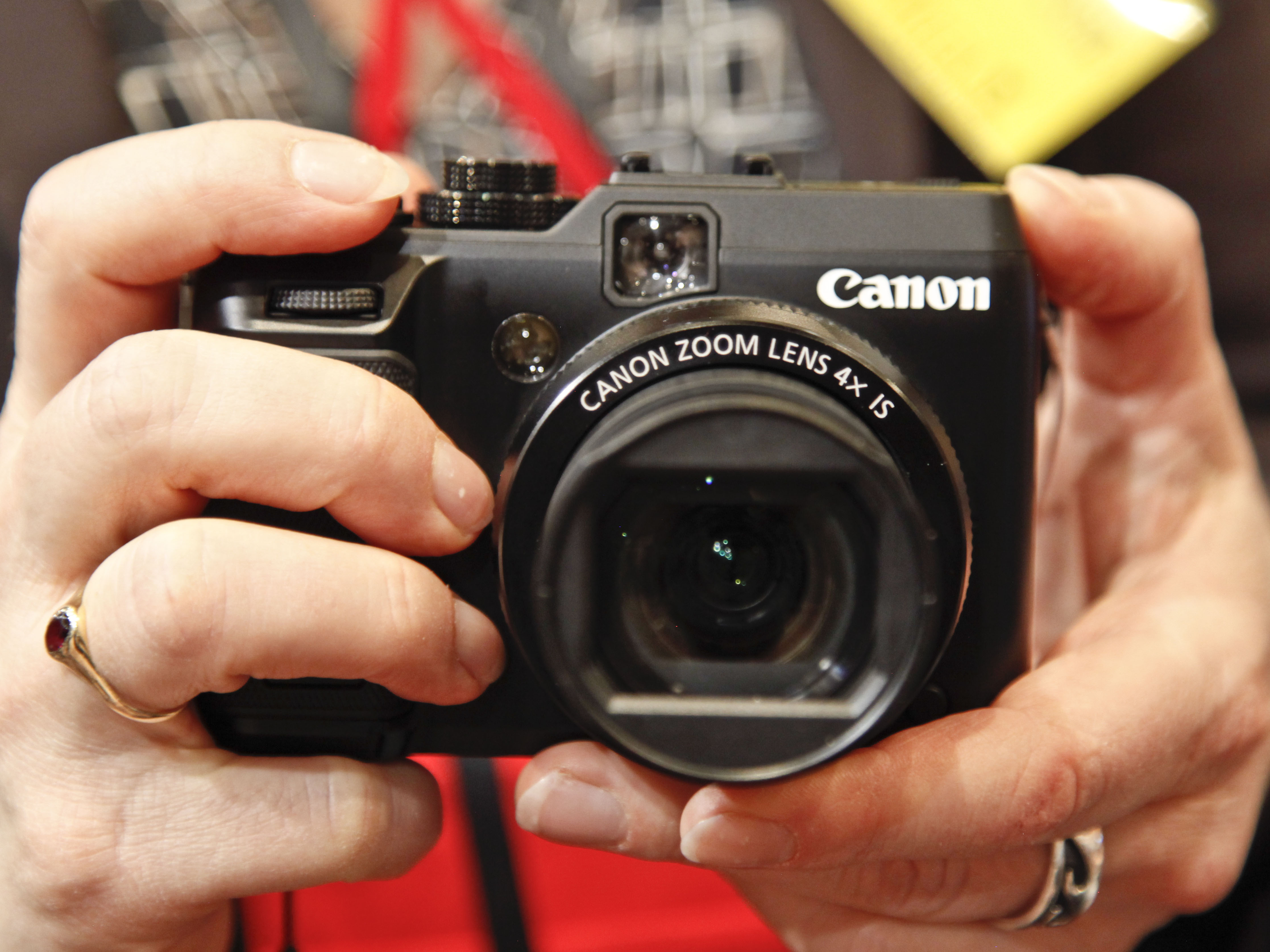
CES is also overflowing with compact cameras. Panasonic has introduced five new models to sit in its Lumix range. They include the 16.1-megapixel FS45 and 14.1-megapixel FS40 models; 16.1-megapixel Panasonic Lumix S5; the 14.1-megapixel SZ7 and the 16.1-megapixel SZ1.
Sony has added three new cameras to its enduring CyberShot range - the DSC-W610, DSC-W620 and DSC-W650. While Samsung has been showing off its WB850F and WB150F high-end compacts.
Olympus, meanwhile, has announced five new compact cameras, including a rugged "Tough" camera. The TG-320 is shockproof, waterproof and freezeproof, and is, according to Olympus, "virtually indestructible".
